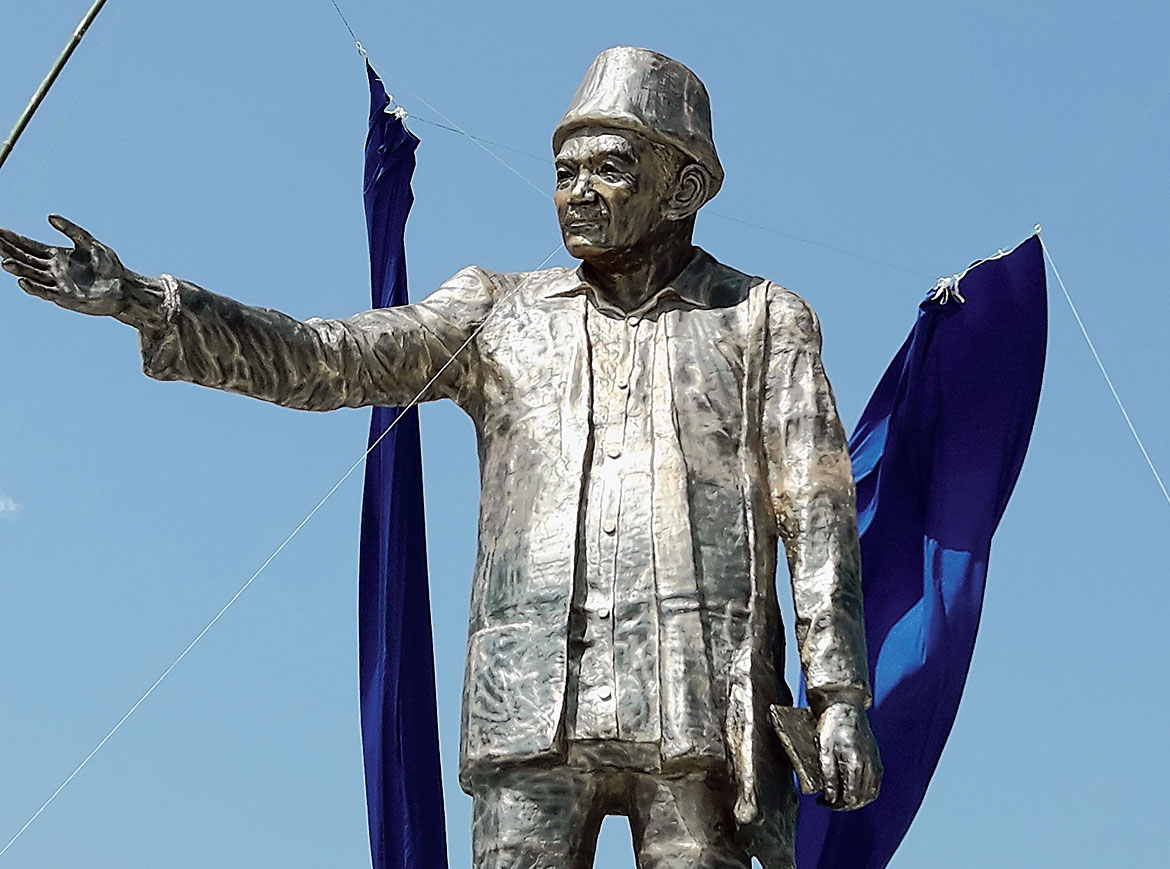A 20-foot statue of Golgi Bote Talom Rukbo, the guru, was unveiled by Arunachal Pradesh governor Brig. (Dr) B.D. Mishra on the premises of Central Donyi Polo Yelam Kebang here in East Siang district on Friday.
Donyi-Poloism, the indigenous religion of the Tani and other Tibeto-Burman people of Arunachal Pradesh, is symbolised by donyi and polo, meaning sun and moon respectively.
The name was chosen to revitalise the religion to protect it from the onslaught of modernity and other outside religions.
Donyi-Poloism was pioneered by Golgi Bote Talom Rukbo in 1964.
On unveiling Arunachal’s as well as the Northeast’s tallest statue immortalising the guru, Mishra appreciated the efforts of the Golgi Bote Statue Erection Committee, Central Donyi-Polo Yelam Kebang, Pasighat and Indigenous Faith and Cultural Society of Arunachal Pradesh (IFCSAP) and others, for building the statue. He also greeted each of the tribes that represented their indigenous faith and belief for coming from all corners of the state and parts of northern Assam.
Rukbo, known as the father of Donyi-Poloism, believed that the main reason of the easy erosion of the culture was that it lacked written literature.
Thus, prayers and hymns were composed to recover and revitalise the endangered rituals.
The gradual erosion of state’s indigenous identity was attributed to the impact of foreign culture since the 1950s. Hence, Rukbo conceived the idea of a religion to unite all Tibeto-Burman folks to have a common identity for a meaningful life.
This rejuvenation resulted in the roots branching out to strengthen the faith further. Donyi-Poloism, a religion that makes no distinction, is more relevant in the present day context as its believers pray for the greater welfare of the humanity while practicing the much-needed tolerance towards other cultures. The religion is unique as women priests (miri/nyibus) are equally revered.










